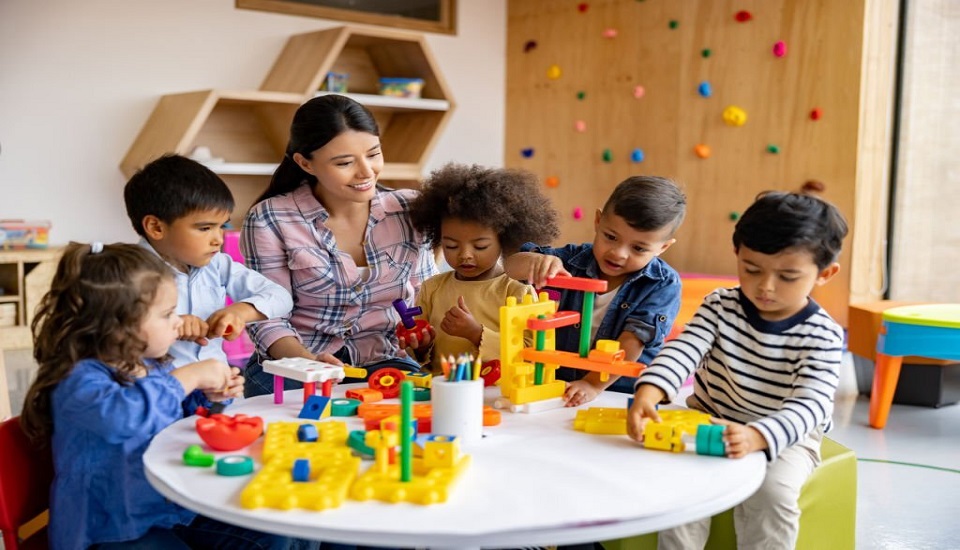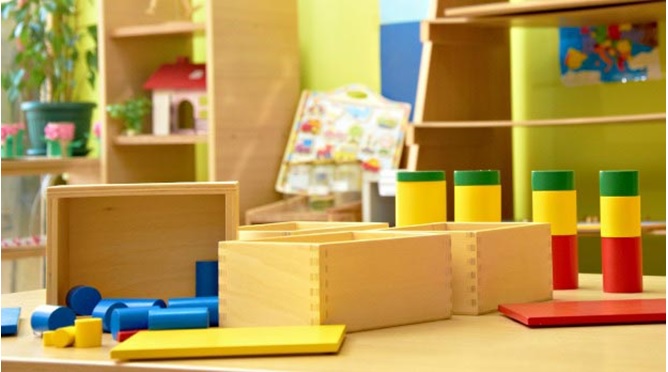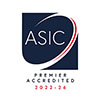5 Confirmed Tips To Manage Small Groups In Preschool And Pre-K
16th August 2022

Small groups are a very-effective instructional technique that lets educators target their teaching to meet the requirements of each student in their classroom. The size of the small group usually depends on how many children are in your class in a given year.
However, the ideal size of a small group should be around 4-6 children. Here are some proven tips about group size, what to do in small group, when to plan small groups, how to assess children, and many more.
Why Small Groups Are Important?
Small group events let you differentiate training for your students without difficulty. The benefits are much greater. If you learn how to include small group goings-on into your everyday schedule, you’ll be able to support your preschool, pre-k, and kindergarten students to learn further.
An added important aspect of small group instruction is the Framework. When you deliver explicit provision to aid a child move to the next level of education, this is usually denoted as scaffolding education.
Small group activities encourage growth in:
- Cooperation and teamwork
- Conversational skills
- Compromising and managing frame of mind
- Sharing and understanding
- Thought management
Here, kids have the opportunity to share their ideas and experiences with each other.
What Happens in Small Group?
Small groups are most effective when you have them day-to-day. A superior early childhood program practices valuation data to make small groups. Teaching without following assessment data is just a waste of time and energy. In small group, people typically plan literacy, art, fine motor, science, math, and cooking events. Sometimes, teachers also use small group time to practice skills that they have to cover like sorting, matching, counting, etc.
Your creative small group time has to match the consideration durations of your children, especially at the start of the school year. You can start the year with less than 10 minutes per group, but as your school children start to grow and mature, you will be able to increase the time progressively.
How to Manage Small Groups?
Looking for keeping a methodical preschool classroom? Consider trying the following:
Give Comfort and Encouragement
Quite certainly, preschool classrooms are chaotic. Hence, it is important the way you organize it. This helps in ensuring that effective learning is happening. Try to distinguish noisy areas of the classroom from the quiet ones. Make fixed areas in the room like reading, timeout, play, food and so on. If the ‘borderlines’ of each space are strong, it simplifies the relationships in the room.

(Source - https://blog.reallygoodstuff.com)
Deliver Tools for Expression
The young children don’t always know how to manage their emotions or communicate their emotional state. The fact is children don’t essentially need to communicate why they are so upset or angry if they can express their emotions resourcefully. Try to offer kids choices of songs, art, movement in a quiet space set apart from the group and so on. Nevertheless, you can offer gentle support if students do not know how to manage their feelings.
Create A Transitional Plan
Shifting time can be hard for kids, so having a rock-hard plan with no breaches is certainly a must. Make a solid plan for transitions as there will be numerous times in the day when kids are transitioning from one movement or area of the room to another. Thus, it’s significant to have a plan for these changeovers. Use a countdown as a part of your strategy so that kids are ready to move on when the time comes. This will aid children to feel organized for the transition.
Make Integrated Learning Environments
Devoting learning spaces to auditory, visual and social/emotional growth areas will support toddlers make associates between their experiences and the world around them. Daily exercise and outdoor play are important. Create a conducive environment. Cohesive learning surroundings do have separate learning centers or stations which let kids explore and play securely.
Manage Enduring Issues with Creativity
Needless to say, kids will have bad-tempered days. Analyze the situation at first. Take a step back and try to identify the problems. Try to make things more enjoyable. Try to find solutions for the child when he/she is having bad-tempered days.
Conclusion
To conclude, we can say that small group activities deliver a great chance for educators to get some personalized observations. Teaching preschool can be full of laughter and little delights. Consider Certificate in Pre and Primary Teachers Training program. Try the above-mentioned tips for small group classroom management.
Want to earn your Certificate in Pre and Primary Teachers Training certification? Give us a call at our toll-free number - 1800 212 6400 or else you can reach us at +919739615888. Our expert advisor will share all the important aspects of the certification including the hiring process, salaries, career options, job placement assistance and more.
Written By : Neha Sharma











